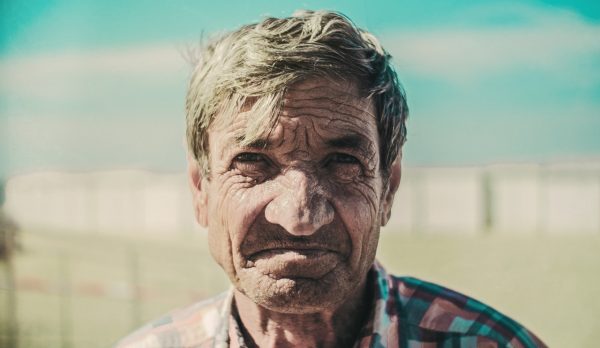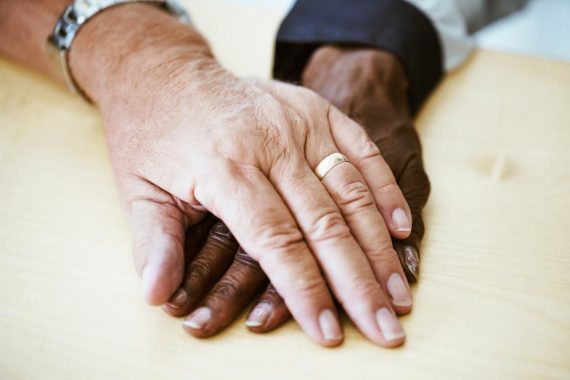Understanding Loneliness in the Elderly

Loneliness is a growing issue for people of all ages, with loneliness in the elderly a particular concern for academics, psychologists and charities. But what makes older people lonely, and how can we help them overcome it?
Family Dynamics
Society has changed both positively and negatively in the last few decades, due to technology, innovation and the economy. We take on more overtime work than before (an average of 9.6 hours a week, according to a 2017 study by Totally Money). We also retire later, spend more time commuting (according to the TUC in 2018) and take work home with us on smartphones and laptops, so it’s not surprising we have less quality time with older family members, whether to see them socially or support them day-to-day.
When they need practical help or assisted living arrangements, we may be hundreds of miles away, and it may not be feasible for them to move in with us or for us to move closer to them. Finding the right sheltered accommodation or care home isn’t easy, either; it involves great upheaval for an elderly person.
Regaining a Social Life
An older person’s social life can dwindle for many reasons: perhaps their existing friends have moved away, gone travelling or become weekday carers for their own grandchildren. If someone chooses to retire and has previously depended on workmates for their social life, it can take a long time to adjust to retirement, and a challenge to reconnect with old colleagues outside the office.
The same goes for someone whose social life may have revolved around their partner; grief for the loss of that partner comes alongside grief for the companionship and social life that is lost.
Developing new friendships isn’t an overnight process and, as in the days of making friends at school or work, some of these friendships will quickly fizzle out whilst others will be slow-burners. However, there are several sure-fire ways to meet new people, whether or not they become close friends:
- Volunteer – this doesn’t have to be a heavy commitment, but a couple of hours a week at a charity, hospital, museum or even helping a community group is a good way to start. If that seems too much, try volunteering as a marshal at a big one-off charity event or a community clean-up.
- Find common interest groups – use Meetup.com or search local newspapers and magazines for details of nearby groups, whether that involves walking football, crafts, books, theatre trips or archaeology.
- Get a small part-time job – pick something manageable and customer-facing. It may not be well-paid compared to previous jobs, but it’s the chance to get out of the house and earn some ‘pocket money’. Think paper rounds (especially for those who wake early), working in a community café, or taking a couple of weekly shifts at the local garden centre, with the bonus of staff discount on all those lovely plants.
If there’s very little available locally, particularly if an older person lives in a rural area, remember there could be many others nearby in a similar situation. Consider looking further afield for groups or jobs, or try setting up a group and promoting it locally with posters, newspaper listings and a Meetup.com listing, which is free.

Emotional Wellbeing
Loneliness can have huge repercussions on someone’s emotional health, leading them to feel anxious, depressed, withdrawn and lethargic. Dealing with these emotions will take time, especially as people may be reluctant to admit they are lonely, but talking therapy can help uncover the feelings and core beliefs behind that loneliness.
Core beliefs may seem dramatic – for example, ‘all my friends will abandon me’ or ‘I am not a fun person to be around’ – but they sit at the heart of a person’s emotional distress. In Cognitive Behavioural Therapy (CBT), we challenge these core beliefs, relate them to periods in our life, and weigh up the evidence for and against them being true.
Physical Health Effects of Loneliness
Loneliness also brings physical health considerations. Lonely people are more likely to have a stroke, coronary heart disease and even dementia; they are also more likely to enter residential care earlier, take more medication, and have a greater risk of falls than their peers who do not report being lonely. It is said that loneliness is as bad for your health as smoking 15 cigarettes a day.
Let’s not forget that a socially active person would probably have a better support network around them for any mental or physical health needs, too. Having people on hand to travel to appointments or check in from time to time has got to be a bonus for overall health; if they can’t physically be there, regular phone calls, messaging and video calls make a difference as well, and a break in frequent contact can alert a friend or relative that something’s wrong.
Ignoring loneliness won’t make it go away; there are serious mental and physical effects to consider, and we can break the cycle by encouraging interaction, peer networks, self-esteem boosts and talking therapy.
Written by guest contributor Vikram Das for Dr Chrissie Tizzard, Chartered Consultant Psychologist, PsychD, BSc, MSc, C.Psychol, C.Sci, AFBPS. Dr Tizzard is the Clinical Director of Christine Tizzard Psychology (ctpsy.co.uk).